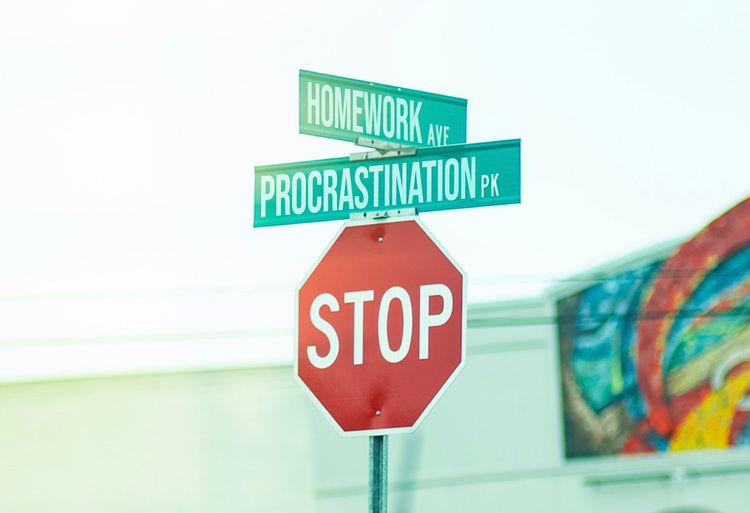Your top 5 apps define you

Our lives are defined by how we spend our time, and for many of us, most of our time is spent in front of a screen.
Today, I decided to investigate how I spend my screen time. This turned out to be fairly easy to check since my iPhone and iPad (which I use as my daily computer) both have a Battery functionality that tracks app usage.
I have 116 iPhone apps and 78 iPad apps (I counted), and what I found was quite surprising to me: over 80% of my screen time was spent on just 4 apps. I think that this and some other findings are worth sharing, so I'll discuss them in today’s post.

The image above shows my iPad and iPhone usage over the past 10 days. With average screen time per day at over 11 hours, I’d say it’s a fair approximation of how I spend my days aside from face-to-face meetings at work, daily routine (commute, food, sleep, etc.), and time with family.
Let’s go through the top 5 apps:
WeChat (29 hours on screen, 9 hours in the background)
It seems that I spend an average of 3.8 hours per day on WeChat. The time spent here is actually almost all work-related communication with my team and with students. I almost never check 朋友圈, and there are only two non-work 公众号 that I read regularly.
The 9 hours in the background are probably WeChat phone calls.
Safari (36+ hours on screen)
The 3.6 hours per day that I spend on Safari is a bit more of a mixed bag since it’s a portal to many things. For more clarity, let’s check my top 5 most visited websites:

Bing seems to be my search engine of choice. YouTube is where I learn and entertain myself. LinkedIn is my preferred social network. “Homes for Sale” is where I go to check properties for sale in Vancouver. Jimmy’s Oasis is this blog.
If I had to guess, I’d say that I spend at least 80% of my Safari time on these 5 websites, with Bing searches and YouTube probably accounting for a sizeable majority of that 80%.
Notes (16+ hours on screen)
This app is where I prefer to write and store the text for anything I’m working on. These days, it’s mostly where I write my blog posts.
Magic (11.5 hours on screen)
My mobile game of choice, and usually how I pass the time when I accompany my daughter for her naps.
Shadowrocket (24 mins on screen, 76.5 hours in the background)
Not much to say - this is my VPN.
Considering the above, it would seem that:
- My job is of average intensity. I checked my calendar and counted ~30 hours of work-related meetings over the past 10 days. If we assume 30+ hours of work-related app usage and deduct a 2-day weekend, it works out to about 8 hours of work per day.
- I spend 2+ hours per day on this blog.
- Safari is a huge time sink.
Most importantly, if I want to be more effective with my time, I have the capacity to cut at least 20 hours of Safari usage and 10+ hours of Magic, freeing up an extra 3 hours per day.
To accomplish this, it would help to know why I'm spending time on these apps. My Home Screen setups reveal a potential answer:

In both my iPhone and iPad, Safari is the left-most app on my permanent dock. It's literally the best piece of real estate on my screens as my eyes are drawn here whenever I don't have urgent tasks to complete. Also, I am to blame for putting Magic on my iPhone's Home Screen. I suppose it makes sense that the 4 apps on my Home Screen are the apps I use the most.
Given my hypothesis, I'm going to test it by making the following changes:
- Remove Safari and Magic from my Home Screens and permanent docks.
- Remove apps I don't use often such as Files, Google Chrome, Tencent Meeting, Day One, and Hey email from my iPad's permanent dock.
- Add an app I want to use more of (eg. Books) to my iPhone's permanent dock.
By making the above changes, I expect to replace ~3 hours of Safari/Magic every day with more reading and non-screen activities.
I hope my screen time analysis that I shared today encourages you to do the same. If you can also identify 3 hours a day that can be repurposed towards more productive ends, it could have a life-changing difference on your personal growth.
As an additional concluding note - I suspect that the same "top 5" principle applies to other aspects of our lives as well. For example, we could consider the 5 people we spend the most time with; the 5 locations we frequent the most; the 5 items of clothing we wear the most; the 5 meals we have the most often; and so on.
Our decisions become even easier when we realize that only a few items in our top 5 lists can be changed immediately. If we account for family members whom we live with, we may only have the capacity to carefully choose 1-2 friends to nurture a strong relationship with. Our home and workplace aren't easily changed, so we only need to assess our 3rd-5th most frequented locations.
Limiting our choices and realizing that such choices will produce outsized gains make it easier to act immediately. And it's likely easiest to start with Home Screen apps, as it only takes a minute.




